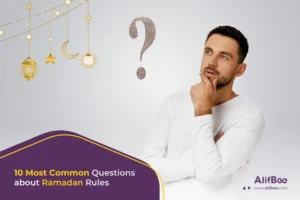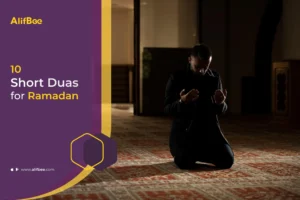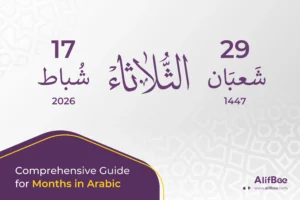12 Ways to Say Yes in Arabic
In any language, saying “yes” is one of the most important and common parts of communication. But it’s not just about expressing agreement in Arabic.
There are so many different ways to say Yes in Arabic and each one tells you something about the situation, the speaker, and even the region they’re from.
In this post, we’ll take a closer look at the various ways of saying Yes in Arabic, including how we say yes in formal, friendly, polite, and ambiguous situations.
But first, let’s answer an important question.
Why Are There Different Ways to Say Yes in Arabic?
Arabic is spoken in multiple countries, dialects, and social settings. The difference between dialects is the result of the contrast between formal and informal Arabic, differences in tone and emotional expression, cultural norms around politeness and communication, and strong regional identities. Each way of saying “yes” carries its own nuance, helping speakers express agreement appropriately in diverse contexts.
How to Say Yes in Arabic
نَعَم
Yes
Naʿam
English
Transliteration
Arabic
Did you understand the lesson?
Hal fahimta ad-dars
هَل فَهِمتَ الدَّرسَ؟
Yes, I did.
Naʿam, fahimtuh
نَعَم، فَهِمتُهُ.
The word “نعم” (Naʿam) is the standard word in Arabic for yes. It’s clear, polite, and works pretty much everywhere, like classrooms or when talking with strangers. If you only remember one word from this list, make it this one.
بالتَّأكيد
Certainly / Definitely
Bil-taʾkīd
English
Transliteration
Arabic
Will you attend the meeting?
Hal sataḥḍuru al-ijtimāʿ?
هَل سَتَحضُرُ الاِجتِمَاعَ؟
Certainly, I will be there on time.
Bil-taʾkīd, sa-akūnu hunāka fī al-waqti al-muḥaddad.
بِالتَّأْكِيد، سَأَكُونُ هُنَاكَ فِي الوَقتِ المُحَدَّدِ.
When you want to sound more confident or official, “بالتَّأكيد” (Bil-taʾkīd) is the right choice. It’s like saying “absolutely” or “without a doubt.” It is perfect when you want to show strong agreement or make a promise.
أَجَل
Yes
ʾAjl
English
Transliteration
Arabic
Did you finish the homework?
Hal anhayta al-wājib?
هل أَنهَيتَ الوَاجِبَ؟
Yes, I finished it this morning.
ʾAjl, anhaytuhu ṣabāḥa al-yawm.
أَجَل، أَنهَيتُهُ صَبَاحَ اليَومِ.
This one is a bit more formal and a little less common in everyday speech. The Arabic word “أجل” (ʾAjl) is often used in writing, literature, or formal speeches. Still, it’s good to know as it might come up in more polished conversations.
بَلَى
Yes (to a negative question)
balā
English
Transliteration
Arabic
Aren’t you a student?
Alasta ṭāliban?
ألستَ طالبًا؟
Yes, I am
Balā, anā ṭālib.
بَلَى، أَنَا طَالِبٌ.
This is a special one. If someone asks you a negative question, like “Aren’t you a student?”—and you want to say “Yes, I am,” you don’t use “نعم,” you use “بلى” (Balā). It might feel unusual at first, but it’s very natural in Arabic.
طَبعًا
Of course
ṭabʿan
English
Transliteration
Arabic
May I use your phone?
Hal yumkinunī istikhdāmu hātifik?
هَل يُمكِنُنِي اِستِخدَامُ هَاتِفِكَ؟
Of course, you can use my phone.
Ṭabʿan, yumkinuka istikhdāmu hātifī.
طَبعًا، يُمكِنُكَ اِستِخدَامُ هَاتِفِي.
Now, if you want to sound friendly and casual, use “طبعاً” (Ṭabʿan). It is like saying “Of course” or “Sure thing!” You’ll hear this all the time in everyday Arabic when people give permission or agree without hesitation.
تَمَام
Okay/ alright.
tamām
English
Transliteration
Arabic
A: When are we going to meet today?
Matā sanaltaqī al-yawm?
مَتَى سَنَلتَقِي اليَومَ؟
B: Near the cinema at seven
Jāniba as-sīnimā ʿinda as-sābiʿah.
جَانِبَ السِّينِمَا عِندَ السَّابِعَةِ.
A: Okay, see you there.
Tamām, arāka hunāk.
تَمَام، أَرَاكَ هُنَاكَ.
The Arabic word “تمام” (Tamām) is one of those words that just make life easier. It means “okay” or “all good” and can be used in many situations, like confirming a meeting time or agreeing to a plan. It is also more commonly heard in Levantine Arabic, the dialect spoken in Syria, Lebanon, Palestine and Jordan.
أَكِيد
Definitely /for sure.
akīd
English
Transliteration
Arabic
Do you agree with me?
Hal tuwāfiqunī ar-raʾy?
هَل تُوَافِقُنِي الرَّأيَ؟
Definitely, I’m with you on this decision.
ʾAkīd, anā maʿaka fī hādhā al-qarār.
أَكِيد، أَنَا مَعَكَ فِي هَذَا القَرَارِ.
If you’ve ever had an Arabic-speaking friend say “أكيد!” with enthusiasm, you know how fun this one is. It’s a confident, upbeat way to agree, just like saying “For sure!” or “Definitely!”
حَاضِر
At your service" / okay (commonly used to show obedience or willingness).
ḥāḍir
English
Transliteration
Arabic
Bring me a glass of water, please.
Aḥḍir lī kūb māʾ min faḍlik.
أَحضِر لِي كُوبَ مَاءٍ، مِن فَضلِكَ.
Okay.
Ḥāḍir
حَاضِر
This one feels extra polite and respectful. The word “حاضر” (Ḥāḍir) literally means “present” but is used more like “At your service” or “Right away.” It’s often used when someone gives you a request or an order.
حَسنًا
Okay (like "alright").
ḥasanan
English
Transliteration
Arabic
Shall we meet at seven o'clock?
Hal Naltaqī as-sāʿah as-sābiʿah?
هَل نَلتَقِي السَّاعَةَ السَّابِعَةَ؟
Okay, see you there.
ḥasanan, arāk hunāk.
حَسنًا، أَرَاكَ هُنَاكَ.
The Arabic word “حسناً” (ḥasanan) is a versatile expression that means “okay,” “alright,” “fine,” or “very well”, depending on the tone and context. It is derived from the root ح-س-ن (ḥ-s-n), which relates to beauty, goodness, or being good.
In spoken dialects, people may use variants of the word “حسناً”, such as:
- Egyptian Arabic: طيب (ṭayyib)
- Levantine Arabic: ماشي (māshī) or تمام (tamām)
- Gulf Arabic: زين (zayn) or تمام
إن شَاءَ الله
God willing (often means yes, but can be ambiguous in tone).
in shā’ Allāh
English
Transliteration
Arabic
Will you visit us tomorrow?
Hal satazūrunā ghadan?
هَل سَتَزورُنَا غَدًا؟
God willing.
In shāʾ Allāh.
إن شَاءَ الله.
This phrase is deeply rooted in Arabic and Islamic culture. While “إن شاء الله” (In shā’ Allāh) means “God willing,” it’s often used to mean “yes” with a bit of hesitation, or a polite way of not committing 100%. It all depends on the tone and context.
بِكُلِّ سُرورٍ
With pleasure
bikuli surūr
English
Transliteration
Arabic
Can you help me carry this?
Hal yumkinuka musāʿadatī fī naql hādhā?
هَل يُمكِنُكَ مُسَاعَدَتِي فِي نَقلِ هَذَا؟
With pleasure!
bikuli surūr!
بِكُلِّ سُرورٍ!
The Arabic phrase “بكل سرور” (bikuli surūr) means “with pleasure”, “gladly”, or “it’s my pleasure” in English. It expresses readiness, happiness, or willingness to do something for someone in a polite and warm manner.
لا بَأس
"Don’t worry about it" / Sure!
lā ba’s
English
Transliteration
Arabic
Sorry for the inconvenience.
Āsifun ʿala al-izʿāj.
آسِفٌ عَلَى الإِزعَاجِ.
Don’t worry, it’s not a problem.
lā ba’s, al-amr basīṭ.
لا بَأس، الأَمرُ بَسِيطٌ.
The Arabic phrase “لا بأس” (lā ba’s) literally means “no harm”, but it is widely used to convey meanings such as “no problem”, “it’s okay”, or “don’t worry”, depending on the context.
Final word
Now you know twelve different ways to say yes in Arabic. These formal, polite, and personal expressions all show how Arabic has a ‘yes’ for every situation.
The more you listen, use, and notice these little differences, the more fluent and connected with the Arabic language you’ll feel.
If you’re serious about learning Arabic in a way that’s clear and practical, the AlifBee app can help. It guides you through real language, not textbook phrases, and helps you build confidence step by step.
Try it out and say Naʿam to learning Arabic your way.
Frequently Asked Questions (FAQ)
Use formal expressions (like in Modern Standard Arabic) in writing, public speaking, or when addressing elders or superiors. Informal versions are more common in daily conversation with friends, peers, or family.
Yes. Arabic dialects vary widely by region. An expression common in Egypt may not be used in Lebanon or the Gulf. Knowing where and how a phrase is used helps you sound more natural.
Choose formal expressions that convey respect, such as those used in Modern Standard Arabic or in polite dialect speech. Tone and body language also matter when speaking with elders or professionals.
These words differ by register and dialect. “نعم” is formal and universal. “أيوه” is informal and regional. Understanding context helps you choose the right one.
Absolutely. Arabic relies heavily on tone to convey enthusiasm, certainty, politeness, or hesitation. The same word can sound firm, cheerful, reluctant, or indifferent depending on how it’s said.
Formal expressions like “نعم” work in writing. Informal ones are best reserved for casual messages or spoken dialogue. Always consider your audience.









